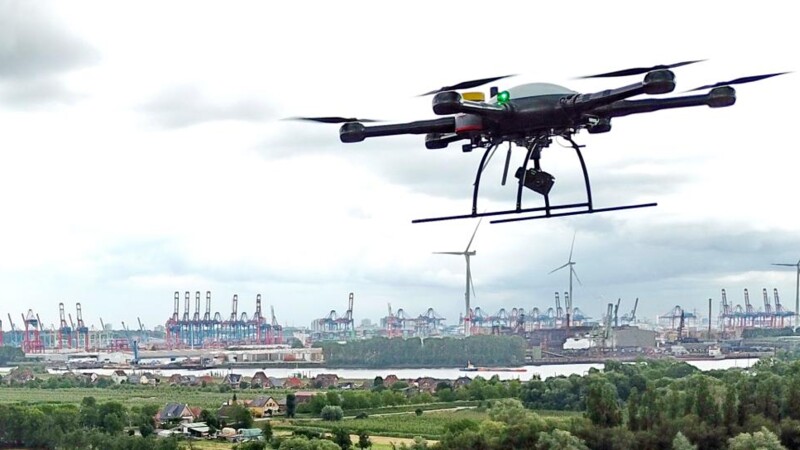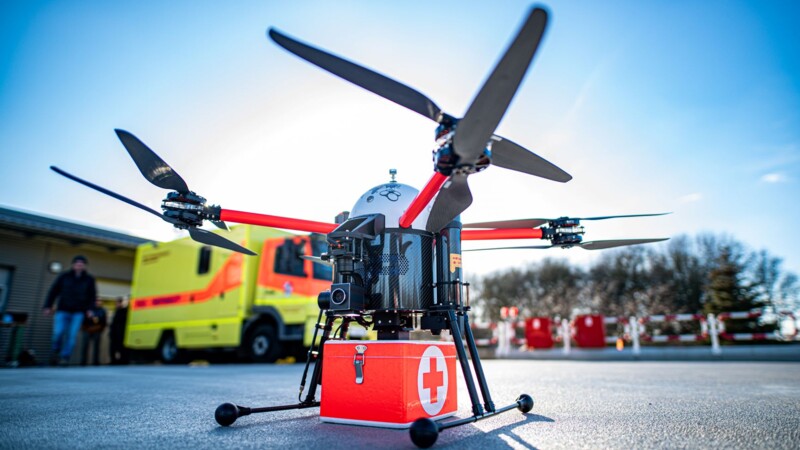Michael Westhagemann, Senator for Economics and Innovation, said: "The U-Space real laboratory in Hamburg was the first test of how the provisions of the new European U-Space Regulation can become reality in future. Hamburg is the perfect location to work on and research unmanned air mobility (UAM)." Hamburg became an official EU model region for developing civil uses of drone and other urban aviation technologies in 2018. The real-world trials were run by Droniq GmbH and DFS Deutsche Flugsicherung GmbH (DFS) and Hamburg's Ministry of Economics.
Tests of Germany’s first U-Space real-world laboratory that co-ordinates drone flights have ended over the Port of Hamburg on schedule, a press release said in December. The EU’s U-Space regulation, which is due to take effect in 2023, works in practice. The German Ministry of Transport will examine the recommendations for the future of U-Spaces and will present them as a possible blueprint in 2022.
Hamburg as a model city for unmanned aviation
Tests over port successful
Test flights over the port have centred on the interaction of U-Space services. They are designed to ensure the safe and efficient integration of drones into urban airspace in combination with manned aviation. U-Space services include the organization of airspace and communication with drone pilots. Jan-Eric Putze, CEO of Droniq, stressed: "We have shown in the sandbox that a U-Space can be set up anywhere, even in such a challenging environment like the Port of Hamburg. Droniq is already U-Space-ready. This underlines our claim to become Germany's first U-Space service provider." Among the main findings was the need for automated processes to handle drone flights efficiently.
tn/sb/pb
Sources and further information
More
Similar articles

World premiere of Volocopter cargo drone in Hamburg

German government funds Hamburg’s "Rescue Mate" project

